#ZeitGeist City
Text

Strangers have a Snack - Berlin Seestraße - Streelight Manifesto #286
#original photographer#original photographers#original photography on tumblr#photographers on tumblr#lensblr#vintage#streetphotography#night city#cityscape#35mm color film#noise#cinematography#neo noir#street light#berlin#zeitgeist#people
67 notes
·
View notes
Text
the first sex and the city movie is basically one satc episode inflated with advertising for haute couture and real estate
#i like it but come on#sex and the city#satc#also the humour that made the show so special doesn't work with the way that they shot and edited it#esp the music#we do not speak of the second movie#although it was very much of its time#for better and for worse#that's the thing though#the franchise has always been able to tap into the zeitgeist#the good and the bad#and just like that feels different#but i think that a lot of the criticism that it gets is unfair
15 notes
·
View notes
Text


Cool. I will go to las angeles based on this ad 👍
#please like why are you advertising the most overrepresented city in the modern zeitgeist#let me hate Los Angeles from 3000 miles away in peace
6 notes
·
View notes
Text
we've found it folks: mcmansion heaven
Hello everyone. It is my pleasure to bring you the greatest house I have ever seen. The house of a true visionary. A real ad-hocist. A genuine pioneer of fenestration. This house is in Alabama. It was built in 1980 and costs around $5 million. It is worth every penny. Perhaps more.

Now, I know what you're thinking: "Come on, Kate, that's a little kooky, but certainly it's not McMansion Heaven. This is very much a house in the earthly realm. Purgatory. McMansion Purgatory." Well, let me now play Beatrice to your Dante, young Pilgrim. Welcome. Welcome, welcome, welcome.
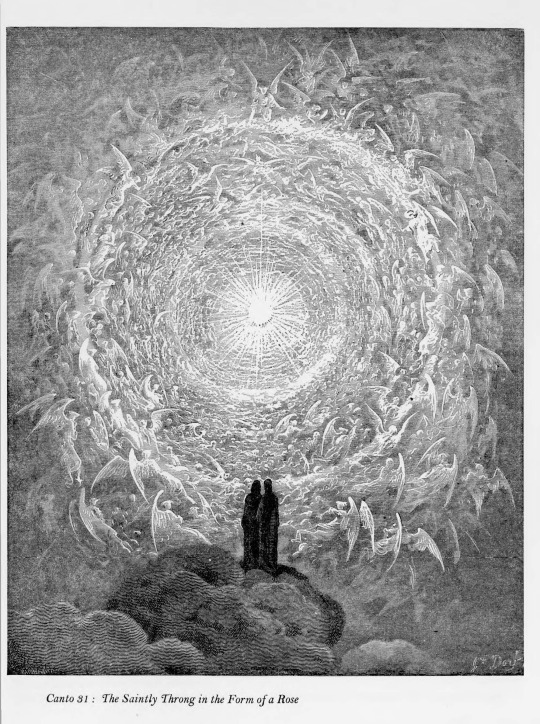
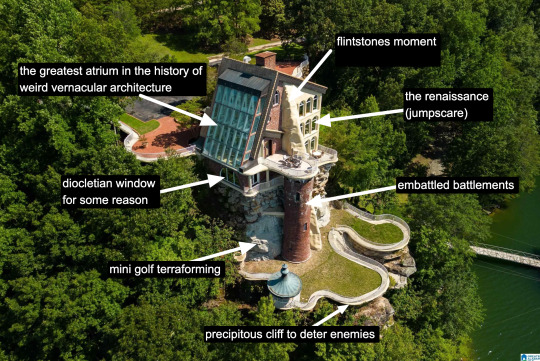
It is rare to find a house that has everything. A house that wills itself into Postmodernism yet remains unable to let go of the kookiest moments of the prior zeitgeist, the Bruce Goffs and Earthships, the commune houses built from car windshields, the seventies moments of psychedelic hippie fracture. It is everything. It has everything. It is theme park, it is High Tech. It is Renaissance (in the San Antonio Riverwalk sense of the word.) It is medieval. It is maybe the greatest pastiche to sucker itself to the side of a mountain, perilously overlooking a large body of water. Look at it. Just look.
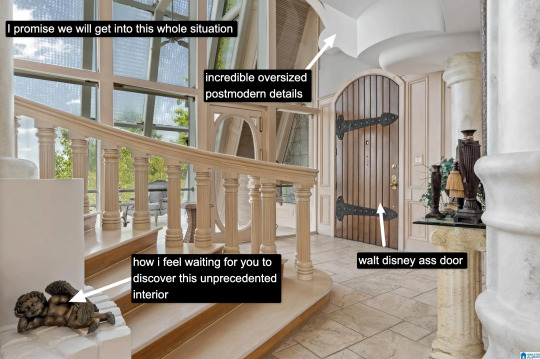
The inside is white. This makes it dreamlike, almost benevolent. It is bright because this is McMansion Heaven and Gray is for McMansion Hell. There is an overbearing sheen of 80s optimism. In this house, the credit default swap has not yet been invented, but could be.
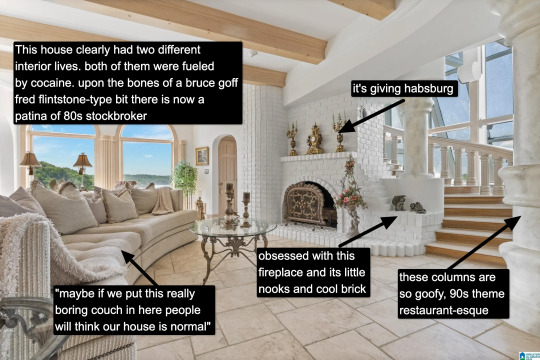
It takes a lot for me to drop the cocaine word because I think it's a cheap joke. But there's something about this example that makes it plausible, not in a derogatory way, but in a liberatory one, a sensuous one. Someone created this house to have a particular experience, a particular feeling. It possesses an element of true fantasy, the thematic. Its rooms are not meant to be one cohesive composition, but rather a series of scenes, of vastly different spatial moments, compressed, expanded, bright, close.
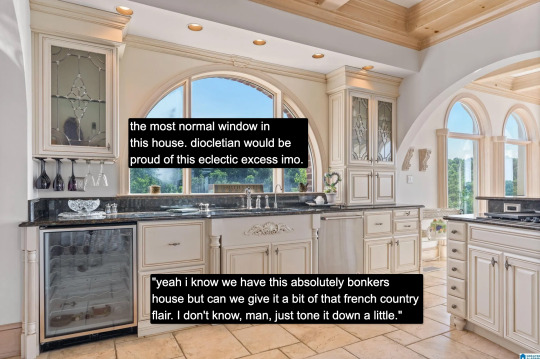
And then there's this kitchen for some reason. Or so you think. Everything the interior design tries to hide, namely how unceasingly peculiar the house is, it is not entirely able to because the choices made here remain decadent, indulgent, albeit in a more familiar way.

Rare is it to discover an interior wherein one truly must wear sunglasses. The environment created in service to transparency has to somewhat prevent the elements from penetrating too deep while retaining their desirable qualities. I don't think an architect designed this house. An architect would have had access to specifically engineered products for this purpose. Whoever built this house had certain access to architectural catalogues but not those used in the highest end or most structurally complex projects. The customization here lies in the assemblage of materials and in doing so stretches them to the height of their imaginative capacity. To borrow from Charles Jencks, ad-hoc is a perfect description. It is an architecture of availability and of adventure.
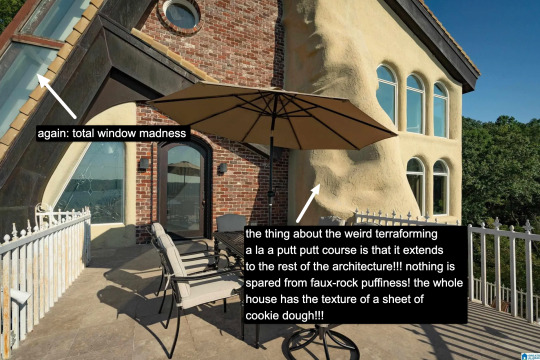
A small interlude. We are outside. There is no rear exterior view of this house because it would be impossible to get one from the scrawny lawn that lies at its depths. This space is intended to serve the same purpose, which is to look upon the house itself as much as gaze from the house to the world beyond.
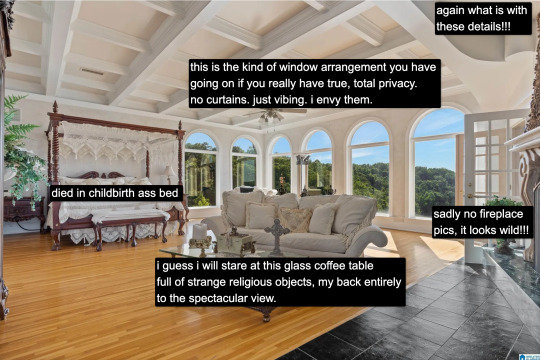
Living in a city, I often think about exhibitionism. Living in a city is inherently exhibitionist. A house is a permeable visible surface; it is entirely possible that someone will catch a glimpse of me they're not supposed to when I rush to the living room in only a t-shirt to turn out the light before bed. But this is a space that is only exhibitionist in the sense that it is an architecture of exposure, and yet this exposure would not be possible without the protection of the site, of the distance from every other pair of eyes. In this respect, a double freedom is secured. The window intimates the potential of seeing. But no one sees.
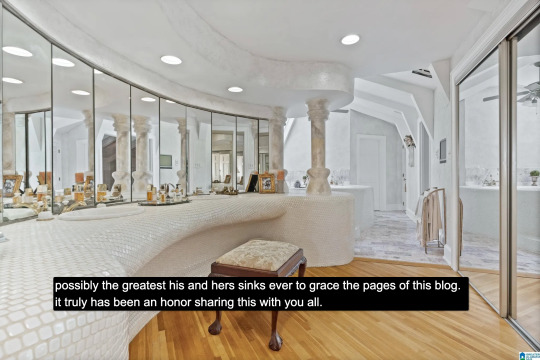
At the heart of this house lies a strange mix of concepts. Postmodern classicist columns of the Disney World set. The unpolished edge of the vernacular. There is also an organicist bent to the whole thing, something more Goff than Gaudí, and here we see some of the house's most organic forms, the monolith- or shell-like vanity mixed with the luminous artifice of mirrors and white. A backlit cave, primitive and performative at the same time, which is, in essence, the dialectic of the luxury bathroom.
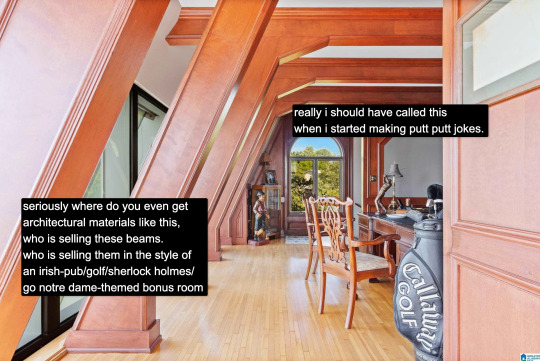
And yet our McMansion Heaven is still a McMansion. It is still an accumulation of deliberate signifiers of wealth, very much a construction with the secondary purpose of invoking envy, a palatial residence designed without much cohesion. The presence of golf, of wood, of masculine and patriarchal symbolism with an undercurrent of luxury drives that point home. The McMansion can aspire to an art form, but there are still many levels to ascend before one gets to where God's sitting.
If you like this post and want more like it, support McMansion Hell on Patreon for as little as $1/month for access to great bonus content including a discord server, extra posts, and livestreams.
Not into recurring payments? Try the tip jar! Student loans just started back up!
42K notes
·
View notes
Text
V/H/S 85: A Gruesome Analog Trip Back to 1980s North America
V/H/S/85 (2023)
Directors: David Bruckner, Scott Derrickson, Natasha Kermani, Mike P. Nelson, & Gigi Saul Guerrero
Writers: C. Robert Cargill, Scott Derrickson, Zoe Cooper, Mike P. Nelson, Evan Dickson, & Gigi Saul Guerrero
Starring Freddy Rodriguez, Kelli Garner, James Ransone, Jordan Belfi, Gigi Saul Guerrero, Chelsey Grant, Shelby Steel, Justen Jones, Chivonne Michelle, & Dashiell…

View On WordPress
#1980s#1985#American Zeitgeist#Cults#Found footage#Gigi Saul Guerrero#Mexico City#Nietzsche#Pop Culture#PSA#Throbbing Gristle#TKNOGD#VHS
1 note
·
View note
Text
How Not to Read Terry Pratchett's Discworld Novels
With the very exciting fantasy books poll bracket going on Discworld and how to read it is in the zeitgeist again. I figured I would take a crack at adding to this important topic with a guide drawn from my own chaotic mess of a reading journey:
Learn that Terry Pratchett is a fantasy author that several people whose reading taste you admire enjoy. He apparently blends comedy, good plotting, and a world that is both grounded and satirical and you're a big fan of all those things.
Fabulous! Decide to read some of his work.
Go to your local library. Love a good library. You're new to the area, so you're also exploring the library for the first time, too.
You have found Terry Pratchett! Points to you! Pull a book off the shelf at random. It's called The Dark Side of the Sun.
Start reading. Realize that this feels more like sci-fi than fantasy. Sigh in smug superiority about people who get the two confused.
Realize about halfway through that this is not, in fact, a Discworld book.
Nobody warned you the guy wrote other things!
It's still good, tho. Maybe a little rough but this was an older book and the author clearly has potential. Let's try again.
Review his works. The vast majority are Discworld. You are highly unlikely to grab another non-Discworld book. Go back to the Terry Pratchett section of the library.
Oh hey he wrote a book with Neil Gaiman! You've hears of that guy!
Grab Good Omens off the shelf.
Take it home, realize, much sooner, that this is also not a Discworld book. Still enjoy yourself thoroughly. You should read more of this Gaiman dude, too.
But okay. For real this time. Go back to the library and don't leave without *CONFIRMING* you have a Discworld book this time.
Grab a book. Look at the cover. Read the back Discworld! Ha HA! You've done it!
It's called Thud.
You are utterly gripped by a story of a man wrestling with himself, his growing child, the political tensions of a city and extremism that echoes reality beautifully while still being entirely true to itself. It's a story of responsibility and love and building communities and Fantasy Chess. You are driven nearly to tears by the sentence *WHERE IS MY COW?*
You emerge from the book fundamentally changed as a person, and finally understanding what all the fuss is about. You are now a Terry Pratchett reader for life.
You realize Thud was in the middle of a series. That was a part of another series. That explains why there was a feeling that you were supposed to know some of these people already.
You finally find one of those flowcharts and figure out a more sensible reading order.
I always sort of laugh when people ask where to start reading Discworld, because Thud would be first on absolutely nobody's sensible Terry Pratchett reading order. I'm still tempted to recommend it though!
(My actual advice: Going Postal if you love con men being stuck doing the right thing, Wee Free Men if you like YA and smart angry girls owning their own power, Guards! Guards! *and* Men at Arms if you like crime shows with heart and are okay giving earlier work a try (the quality gets better and better, but I think it needs at least two books to get you into it), and Monstrous Regiment if you like gender and queer feelings, anti-war books told in the middle of a war, and/or would prefer a stand alone novel...and, you know, Thud if you want a great read and don't mind some chaos.)
5K notes
·
View notes
Note
So if i may be so bold as to ask, how do accents arise? Are they informed by the language, do they inform the language, do both coexist in a loop of creating new dialects? Curious after seeing the recent-not-recent zeitgeist about how (falsely) different cities in different parts of the US are, and i wanna find some evidence to dig deeper ^0^
there's not a straightforward answer, necessarily! accents can develop in an isolated group and diverge from other varieties; they can find a midpoint between pronunciations; they're very dependent on exposure and social context.
here's a couple general articles on accent development, and one more technical piece on cognitive processing of different accents:
how different accents develop within the same language, laurie l. dove
linguists hear an accent begin, susanne bard
navigating accent variation: a developmental perspective, elizabeth k. johnson, marieke van heugten, and helen buckler
162 notes
·
View notes
Text
I love how the creators of MAWS have such a firm grasp of fandom culture and the current zeitgeist that they're able to anticipate how people will react to the show. Case in point: Evil Superman.
At first, I was frustrated by how many people seemed to think this was a sign the show was going in that direction, rather than a refutation of the concept. But then I realized that's on purpose. At this point, media is so saturated with dark and edgy interpretations of the character that we expect Superman to be bad, or at least "not good." Perhaps not a villain, but still falling well short of the ideals he's supposed to represent ala Snyderverse Supes.
But this Clark Kent isn't like that. At all. In fact, you could argue that he's barely Superman, let alone Evil Superman. He's just Clark Kent, clumsy, awkward, pathologically heroic Kansas farm boy in the big city who sometimes puts on a costume and flies. His establishing character moment was fumbling through his morning routine and getting sidetracked by a cat in a tree. As a kid, he tried to stop a crashing car before he even knew this was a thing he was capable of.
This Superman is perhaps one of the most good and pure incarnations of the character ever. Appropriately, his powers are only at their strongest when he's trying to protect people, especially people he cares about. Think about that. If this Superman were to turn evil, he'd actually be *weaker*. He's the ultimate refutation of Bill's speech from Kill Bill.
But Lois doesn't know that. She lives in a world where, much like ours, powerful male figures tend to be unsympathetic (Perry White), self-centered (Steve Lombard), or complete monsters (her father). Now, she's been exposed to a highlight reel of the worst Supermen of the 21st century, and we're all questioning whether he'll turn out like the rest.
876 notes
·
View notes
Text

The thing I am annoyed with about this discourse:
There is a strong chance that the 63 year old single neighbor was taken more seriously by people around him, and probably self-supporting, and there's possibly SOME chance that
We NEED people like that writing to and showing up at City Council and part of the gaslighting I've been feeling about the cultural zeitgeist, is how in the last 20 plus years, that guy just would be written off. Or he would've been marginalized so hard by his financial condition that he's not writing that letter to begin with, and just dismissed as a nut job.
There is a much higher likelihood that this guy was a functioning part of the cultural and social ecosystem when OP was younger, I bet.
56 notes
·
View notes
Text
i think you can make a plausible argument that it was the cultural reaction to 9/11 that killed the star trek franchise for a long time. without rehashing the politics of the 00s too much, there were two possible reactions to something like 9/11, what we might term the "oklahoma city" reaction and the reaction we actually got. 9/11 could have been viewed as a major tragedy but ultimately a criminal act, one which had to be dealt with by the civil authorities like the mcveigh bombing or other notable incidents of deadly terrorism on US soil prior to that date. instead though it was largely conceived of as a foreign military threat, encouraged no doubt by an administration that wanted to pursue a more vigorous foreign policy, and we got, well--*gestures at the first two decades of the 21st century*
this really soured the national political mood--it made the cultural zeitgeist one of paranoia and violent revenge fantasies. it gave us 24, and Taken, and while I'm not sure it's wholly responsible for the reboot of BSG (there's a throughline there with Ronald D. Moore's other work) it certainly contributed to an environment that was receptive to it. and i think in that environment 90s end-of-history optimism about the future, though it should have been a welcome corrective to all that cynicism and paranoia, simply felt like an anachronism. enterprise did last a few years, but only four seasons in total, the shortest run since TOS. the only movie we got in that era before the big hiatus was Nemesis, a movie about terrorism and a foreign threat that just felt kind of weird and incoherent.
and that was the problem for star trek in that era: if you take the utopianism out of roddenberry's future, you're not left with anything interesting. utopianism is the whole justification for these guys exploring space and going boldly and whatnot, the whole reason why the federation is worth rooting for over any of the other guys. i think a big reason the jj abrams movies fail to have any real substance is that they try to make star trek an action-adventure thing, when that was never its strong suit--indeed, TOS fight scenes are notoriously bad!--and it really took until discovery before people were willing to make star trek qua star trek again.
but even then, there's a degree of pessimism at the core of (some of) post-hiatus star trek that sits uncomfortably with the show's original utopian vision. some of this is just the usual metastasization of conceits that worked better as one-offs or very sparingly at most, comparable to the way the borg got beaten into the ground by voyager. but the heavy reliance on elements like section 34 and the mirror universe and the postapocalyptic future and the crapsack alpha quadrant of picard all to me speak of a certain yearning for utopia--a nostalgia for the utopias of the 90s--but much greater cynicism about the relevance of utopian fiction to our day-to-day lives.
267 notes
·
View notes
Text
Isaac here. I have been remiss, allowing recommendations to pile up in our inbox! I'll put them in one big post here. I think these have evolved to be at least partially intended for our audience rather than for us, so I'll include each whole pitch as a public service.
i would be curious to what yall think about Wrath Goddess Sing by Maya Deane, which is about lesbian Achilles in a T4T relationship, and then things get Weird.
if nothing else it’s the most creative of the recent wave of myth retellings
This has now been rec'd twice! I'll put the requisite little star by it.
finally got around to watching love lies bleeding and while it doesn't qualify as wizlez by virtue of not being sff, it absolutely is in the zeitgeist as it hits many, many of the main beats of the wizlez subgenre. wizlez might really hit the mainstream at some point
If the wizlez movie escapes A24 and replaces the my dead wife is a 9/11 metaphor movie at the top of the cinematic heap I'll be surprised but not shocked
i'd like to request Vinbre the Novel by Opacifica! While it is technically a fanfiction, it uses a totally original setting and cast and doesn't require any prior knowledge. It veeery much qualifies for the podcast
Clever, clever. "Technically a fanfiction." You thought I wouldn't notice how many letters these characters' names have? How many sweeps do you want us to spend on this, exactly?
hi! been binge-listening and really enjoy your analysis :) I have a few recommendations -- first, leech by hieron ennes, which may not fit the brief precisely but definitely plays with a lot of the themes that you seem interested in (power, empire, hive minds, immortality, child abuse, body horror). I loved this one and I think it may be to your taste. also, star eater by kerstin hall and the scorpion rules by erin bow -- two dystopian novels with prominent wlw characters and definite wiz vs lez vibes. I can't vouch that these two are Good per se, but I definitely think they're interesting and bring a lot to discuss.
The Scorpion Rules is in fact on our to-cover list, and is only waiting for us to get some different murder at the boarding school books out of the way first.
it's been a hot minute but i have a book rec! It doesn't have lesbians per se but it is very Gender so it may make a good Special Episode (or at least y'all would enjoy it i think!)
it's The West Passage by Jared Pechacek. Little scrungly babies scurry around a castle the size of a city. Decay! Casual cannibalism! gorgeous illustrations by the author! medieval steven universe worldbuilding!
it was very weird and very beautiful
I do like books that take place in One Giant Building.... I'll give it a shot...
Wanted to drop a rec for you guys! Author is hiyodori and the book is The lowest healer and the highest mage!
This has also been recommended twice and we will probably, maybe get to it.
Look I'm aware that due to the time commitment which is on par with reading Homestuck and the audio format it's basically impossible to cover all of it. But fellow wizards vs lesbians listeners should know that the magnus archives probably counts as wizards vs lesbians. There are a million wizards, women fall in love, and lesbians definitely attack the wizards. plus there's an assortment of bad mothers and monstrous children. It somehow has a coherent plot and themes by the end as well, if you can stick with the motw format long enough. However it's mostly wizard pov
It is in fact possible to read the Magnus Archives as an ebook, thanks largely to the efforts of my friend Snarp. I mean, we won't be doing it, at all, ever. But it is possible.
whenever the two of you feel like reading young adult: these feathered flames by alexandra overy has an interesting lesbian (who is also a wizard? or at least has a wizard within her?), and the sequel has an evil wizard who comes the closest to “actual wizard, with the hat and beard and everything” i’ve ever seen
Yeah, why not.
19 notes
·
View notes
Text
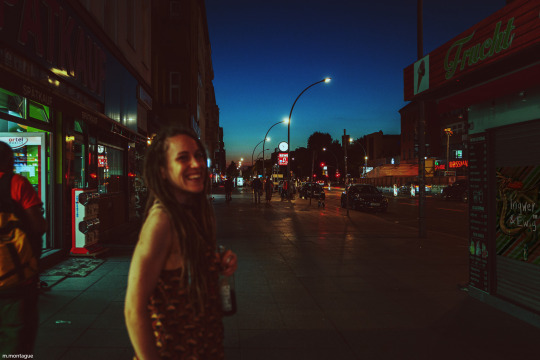
Spätkauf - Berlin - streetlight manifesto #23
#original photographer#original photographers#original photography on tumblr#photographers on tumblr#lensblr#vintage#streetphotography#night city#cityscape#35mm color film#noise#cinematography#neo noir#street light#berlin#zeitgeist#people
31 notes
·
View notes
Text
On the Skidelsky/Fuller post I reblogged, I absolutely welcome automation given the following criteria:
1. The output is identical or, holistically, more positive than human labor output
2. This automation occurs within an economic system in which GDP growth (or similarly fraught metrics) is not the primary objective
3. The automation aids the sustainability of nature and humanity
The USA's agriculture industry is a wonderful example of modern automation failing all three of these criteria. Throughout the entire industrial revolution, agriculture has trended away from being a society-wide confederation of family/community-scale, labor-intensive smallholdings to our current reality of a small number of monolithic industrial farms that are maintained by astoundingly few people who operate increasingly complex and expensive equipment.
Our massive-scale industrial farms are fantastic at what they were designed for; they grow as much of a staple crop as possible without regard to human or environmental health, doing so using minimal labor. Fundamentally, it is an extractive industry. Fossil fuels are extracted to power the machinery, processing, and logistics systems. Nutrients are extracted from the soil to the point that crop growth can only be sustained with heavy amounts of industrial fertilizer input. Entire ecosystems are sacrificed when forests are cleared to be exploited and repeatedly battered with pesticides. This is all primarily to produce soybeans, feed corn, and cotton to then process into products like factory farm livestock feed-slurry, corn syrup, junk food, and sweatshop garments. Secondarily, it is to produce flavorless, nutrition-void produce that can be sold year-round. Consistency is the goal, although one may find that nature itself is curiously inconsistent.
This case study of automation's failings can be traced back to a few major factors:
1. Old-style agriculture work is disagreeable to the USA's perverted fascination for infinite GDP growth; each farm laborer that can be replaced by a machine is a potential worker that could move into a city (or suburb) and put in the same amount of hours at a higher-dollar job. It's just opportunity cost, and this is more-or-less what Skidelsky and Fuller find offensive about our current labor zeitgeist; instead of the now-jobless laborers being free to pursue their interests, they are instead shoehorned into some shitty desk job that produces a relatively greater amount of money to be leeched by executives and shareholders -- this is "more productive" to our economy on the basis of GDP growth and thus must be prioritized over agricultural labor.
2. Industrial approaches to large-scale agriculture are inherently reductive to an extreme extent. Nature is far more complex than Liebig or any other enlightenment thinker ever imagined. Industrialization is great at making cars or computer chips or Gucci jackets or whatever, as these are things that can be standardized with relative ease. Nature cannot be tamed and standardized in a similar way; ecosystems, particularly soil ecosystems, can vary massively even in small areas of the same climate type. Our agriculture systems cope with this simply by ignoring such factors and reducing crop growth to a formula. In X region, plant Y variety of Z crop on A date and apply a regimen of B-type fertilizer and C-type pesticide on D date etc etc. This is the most egregious reduction of something in all of history.
Liebig's reduction of agriculture to the NPK model, just three elements, is good for achieving the singular goal of making your plant of choice come out of the ground, but it ignores all the nuance of soil, climate, and evolution. The other factors don't matter. Modern lab-designed fertilizers often feature a plethora of additional micronutrients, but the goal is still to produce a healthy crop, not healthy soil. Soil itself is an organism, it is something that must be nurtured to be healthy; industrial pesticide/fertilizer regimens are to the soil as feed slurry/antibiotic regimens are to factory farm animals.
Natural processes are, itself, the greatest form of automation for agriculture. Plants and animals that are native to a region have evolved to grow there regardless of human intervention. It is our disruption of these processes that forces agriculture to be labor/resource-intensive. This isn't to say that everyone must immediately abandon all non-native foods and adopt a primarily undomesticated Ötzi diet, but instead, it's worth considering that the complexity of modern technology is not even close to being at parity with the complexity of nature; nature has a several billion year head start. There is no way to flawlessly "tame" it with technological solutions, but a comfortable middle ground can certainly be found.
If sustainable, climate-friendly food production is the primary objective of agriculture, this is far more easily achieved by small, ecology-considerate farms than massive, largely automated industrial farms. A healthy soil ecosystem will aid in growth, flavor, nutrition, and, (quite importantly) carbon sequestration. Broadforking, shoveling, and wheelbarrow-pushing is absolutely more labor intensive than sitting back in a huge John Deere tractor with GPS-based autopiloting features, but the extra labor can turn a woefully extractive process into one that is instead highly regenerative.
20 notes
·
View notes
Text
Janel's article that she wrote for Airmail.News

Tangled Up in The West Wing
On the 25th anniversary of Aaron Sorkin’s beloved political drama, Janel Moloney—who played the idealistic Donna Moss—grapples with the show’s role in her life
By Janel Moloney
September 14, 2024
Reading Time: 4 minutes
The other day, an overcast but hot Sunday, I blow-dried my hair, put on makeup for once, and took my kids uptown. My husband and I were taking our 12- and 14-year-old sons to the Paley Center for Media, in New York City, where there was an exhibition celebrating the 25th anniversary of the premiere of The West Wing. The ticket guy, pale with thick round glasses and a swipe of sandy hair, asked me if I was a fan. I told him yes, I most definitely was.
As we walked into the exhibition, the boys teased me about not being recognized. I told them to stop, that it was just his job, that last week there was a Barbie show and next week was Sponge Bob, so shush, he can’t know us all.
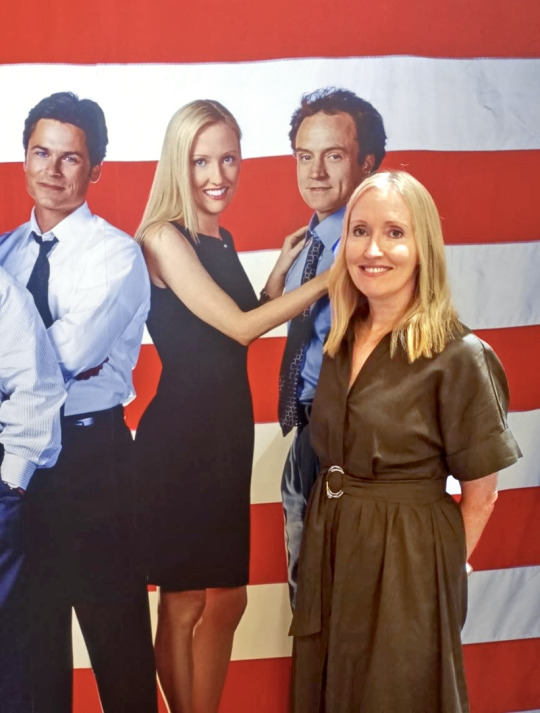
I walked up to the enormous mural of the cast stretched across the museum’s lobby, my hands perched on the shoulders of Brad Whitford, who played Josh. I contemplated the eight-foot image of myself, young and small-waisted with my future deliriously undefined before me, and, strangely, I didn’t feel bad. I had thought I might. That to be around artifacts of that exquisite time might make me feel like an ancient whiskered crone or just plain sad, the glory of that period starkly put up against my regular life. But it wasn’t the case. I felt like I always do around that life-defining job, one that never seems to fade, never seems to recede like a normal past: grateful.
When I told my sister, Meegan, I was going to write something about The West Wing, she asked me what I was going to say. I said I didn’t know. I told her that Donna was my longest relationship, pre-dating my children and my husband, and that my perspective was skewed, the image never really in my rearview mirror, never finding much distance.
“That’s because it’s in your side mirror, dude,” she said on the phone. And it’s true. The show has not stopped but seemingly gotten more popular, remaining in the Zeitgeist, surging when people need political comfort—which these days is always—and amassing new devotees every day. And Donna, my cheerful, smart, vulnerable, funny-as-hell shadow, I’ve accepted as a part of me, like a face tattoo but adorable.
Every day of my life, for the past 25 years, someone has come up to me to tell me about their love of the show.
When I met Donna, 25 years ago, I opened up Aaron’s wonderful pilot script and read the first line of my scene and thought, “Oh. O.K. I get it. Donna loves Josh.” And that was it. The center of my wheel, the fulcrum from which it all spun for seven years. Every issue I fought for, every question I asked, came essentially from that flame, the need to impress or protect, to be seen or appreciated by him. Donna loves Josh.
And it was easy because flirting with Brad, falling in absolute pretend creative love with him and the rest of the cast, was the privilege of my professional life. And really that’s the fun of acting. Letting it all get messy and fluid, your feelings caught up in a tangle of joy, passing the fireballs of words back and forth, not knowing what will happen next.
“Hey, guys, look, this was one of my costumes,” I said to my kids, pointing out a magenta dress with a fitted blazer worn by a faceless mannequin. They may have grunted something. “This is so cool,” my husband said, stepping beside me as I looked at the collection of fake White House IDs. After all these years, my husband has accepted Donna as a member of our family, like marrying a set of twins.
After we headed out, stopping to take pictures with a few surprised fans, I thought about the clothes. As we navigated the throngs of tourists on Sixth Avenue, I could feel the heavy wool skirts, the jackets that our designer, Lyn Paolo, fitted to my slender shoulders. I could hear the click of my heels on the polished marble floors. It was all so much fun.
The last time I stepped into Donna’s costume was for an HBO special raising money for voting rights in 2020. I remember loving getting to be onstage, all of us together. The words came easily, but I realized quickly, with something in the neighborhood of relief, that the fit was not quite right. Donna’s unbridled optimism, her need for Josh, her abject youth, was something that I had grown out of. Like Donna did at the end of the series, I had evolved into my own woman. I married my husband, had two children, and, unlike Donna’s life, my life was absolutely real.
And so, after 25 years, it seems I will continue to live with Donna there in my side mirror, always in my peripheral vision. And I’m O.K. with that. Our journey together keeps going. The beauty of art, of modern television really, is that anytime you want to see her, anytime I do, she will be there. She will be waiting, in her dynamic amber, with C.J. and Toby, Charlie, and Josh with their paper files and Nokia cell phones, ready to cheer us up.
Janel Moloney is an actress living in Brooklyn. She can be seen in the upcoming Better Sister, on Amazon Prime
Here is the link
13 notes
·
View notes
Text
Sometimes I wonder about things in the popular zeitgeist in Gotham City. Like, do edgy Gen Zers say something like ‘put my head in a duffel bag cause I’m dead now’ or something like that because of the absolute bananapants actions of Red Hood?
I firmly believe that there are wars fought over exactly how many Robins there have been, like, I think it’s probably sort of generally agreed that Nightwing is the first Robin. But was there actually a second Robin and a third Robin before we got the girl Robin, or was the second Robin just off recovering for awhile.
And yes, I bet there’s at least some degree of agreeing that Spoiler became the girl Robin became Batgirl… but do they think that she was just filling in for Robin while he was out recovering from an injury?
There has to be like die-hard believers in the six Robins vs three Robins. Is there an argument for more? Less? Like Damian is easily distinguishable from Dick and Jason/Tim, and obviously Stephanie stands out, but what are the popular perceptions about this?
I just have so many questions.
#batman discourse#batman robin#Batman#robins#robin#dccomics#dc#dc robin#gotham#jason todd#dick grayson#tim drake#damian wayne#stephanie brown
116 notes
·
View notes
Note
So curious what ur beef is with phoenix. I grew up there and to me it’s the most nondescript place on the planet
Idk I think it’s one of the most environmentally irresponsible places to live and contribute to. Areas that barren and dry shouldn’t be as rapidly growing as they are…yet they are. Phoenix becoming this megalopolis while there’s thousands miles of regions with more reliable natural resources/green that are just treated like giant lawns for the dep of interior. The culture there is fake in the absolute sense of the word. It’s a very demonic place. Scottsdale is the nicest city in the state and it’s the tackiest place I’ve ever seen. Not Phoenix but Sedona is beautiful and there’s so much beauty in it but I find the spiritual tourism there to be a slap in the face toward colonialism. I’ve had arguments with people who claim it’s a very blue state but there’s a potent cultural zeitgeist there of white antipc derelicts akin to what’s going on in Florida and Texas. Worst place I ever went to was a Walmart in maricopa county to get medicine. Felt like a dinosaur was going to crawl out of the earth and rip me to shreds
22 notes
·
View notes